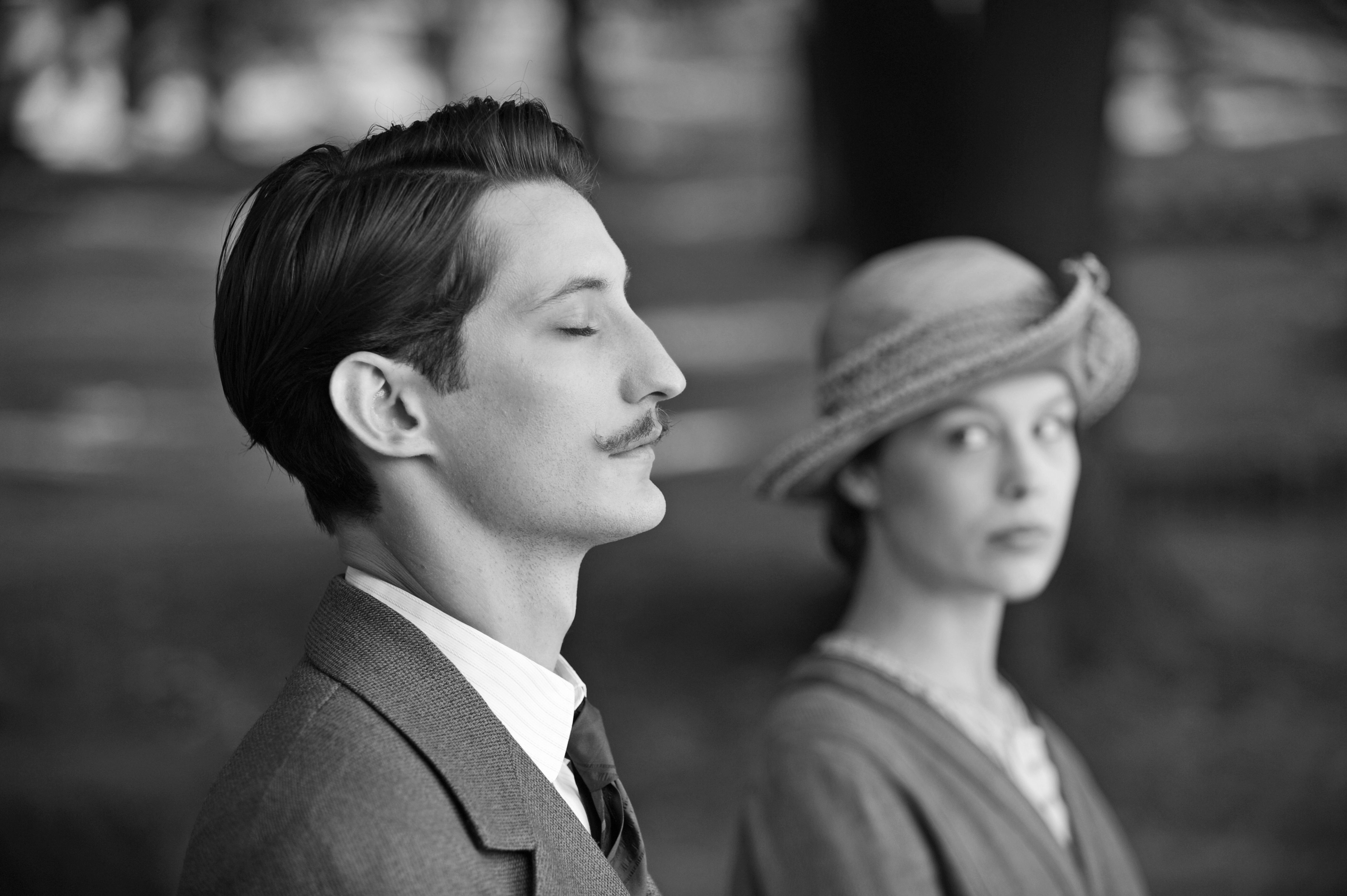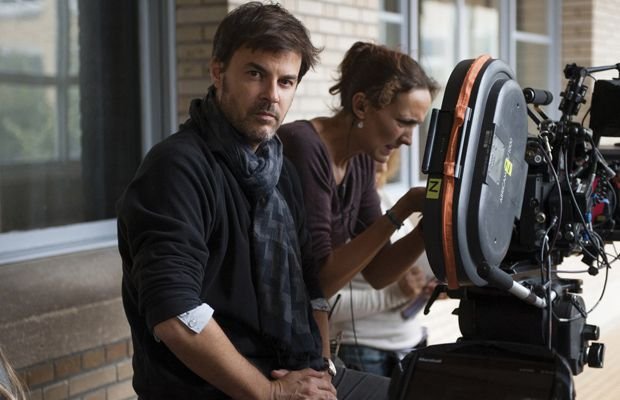Should we now be thinking more seriously about another war?
If you watch this film, you may think more deeply. Here are my thoughts:
Frantz subtly reminds of the consequences of war, both redeeming and brutal

Frantz (2016, Germany and France) is a pensive reflection on warfare, loss, revenge, despair, truth, love and forgiveness. Set at the conclusion of World War I, it opens with a young woman named Anna (Paula Beer) placing flowers at a grave in Quedlinburg, a small German town. She is startled when she sees fresh flowers already there and the next day observes a mysterious stranger crying at the grave. She’s mourning the loss of her fiancé, Frantz (Anton von Lucke), and soon learns that this French stranger was Frantz’s friend when Frantz was studying in Paris before the war.
This friend - Adrien (Pierre Niney) - is first rebuffed by Frantz’s family, with whom Anna lives, and despised by the local Germans. Anna convinces Frantz’s parents to open their hearts to him despite him being French. Gradually, Adrien becomes beloved by Anna and Frantz's parents, Hans (Ernst Stotzner) and Magda (Marie Gruber), as he recounts his days with Frantz in Paris on various excursions. In a later scene in a bar, Hans criticizes his German friends who scorn Adrien. Hans blames himself and all the fathers - French and German - for their sons’ deaths. They sent them to battle to do their duty, to serve their fatherlands.
When Adrien first speaks of his days in Paris with Frantz, the high contrast black-and-white film shifts into muted colors, then later back to black-and-white as the setting returns to the Hoffmeisters’ home. These shifts happen various times in the film.

Director Ozone comments on his blending color into a predominantly black-and-white film:
“Working in black and white for the first time was an exciting challenge, but it was also heartbreaking, as my natural tendency is to emphasize color and technicolor. It was thus difficult for me to give up color in certain locations and scenes. Especially the scene in nature, where they walk to the lake, which is a reference to German Romantic painter Caspar David Friedrich. So I decided to use color as a dramatic element in flashbacks and certain scenes of lying or happiness, to suggest life bleeding back into this gray period of mourning. As blood runs through veins, color irrigates the black and white of the film.”
As Anna and Adrien become closer, the darkness she sensed initially when he spoke of Manet’s painting of a pale boy with his head thrown back becomes more apparent. Later, Adrien swims in a nearby lake as Anna watches wistfully. She notices he has a war wound and when asking him about it, he responds, “My only wound is Frantz.” The foreshadowing leads to the real reason for his gloom, and ultimately he and Anna part as he returns to France and Anna realizes her burden.
The Hoffmeisters are sorry to see him go since his musicality and his demeanor - shy yet stormy - remind them of their son. Anna holds onto a secret, not wanting to break the hearts of this family. After she confesses to her priest, he remarks, “What would the truth bring? Only more pain. Only more tears.”
I am reminded of Erich Remarque’s brutal novel, “All Quiet On The Western Front,” as I put my thoughts together about Frantz. The message is the same. War has savage consequences and in the end it is simply one human being fighting against another human being, with all the complexity, heart, faith, fear and sorrow of his or her opponent. The consequences ripple outwards and can damage permanently. Or lead to wisdom. There is an element of choice in the consequence, as Anna realizes.
Directed by Francois Ozon - who is also known for earlier works such as In The House (2012), Swimming Pool (2003) and 8 Women (2002) - adapted Frantz from the 1923 film, Broken Lullaby, by Ernst Lubirtsch.
Nominated for close to two dozen awards, Frantz has won the Spotlight Selection at this year’s Sundance Festival, the Director’s Choice Award for Best Foreign Feature Film at the Sedona International Film Festival, the Best Young Actress Award for Paula Beer at the Venice Film Festival and Best Cinematography at the 42nd Cesar Awards.
The cinematography of Pascal Marti is extraordinary, with sharp shadows, clean lines, bright whites, and scenes evocative of paintings of villages, bars, battlefields and the countryside.
Here is a link to the trailer:
Sources: IMDB, the Film website: http://www.musicboxfilms.com/frantz-movies-152.php
Photos are copyrighted . Jean-Claude Moireau - Foz/Courtesy of Music Box.